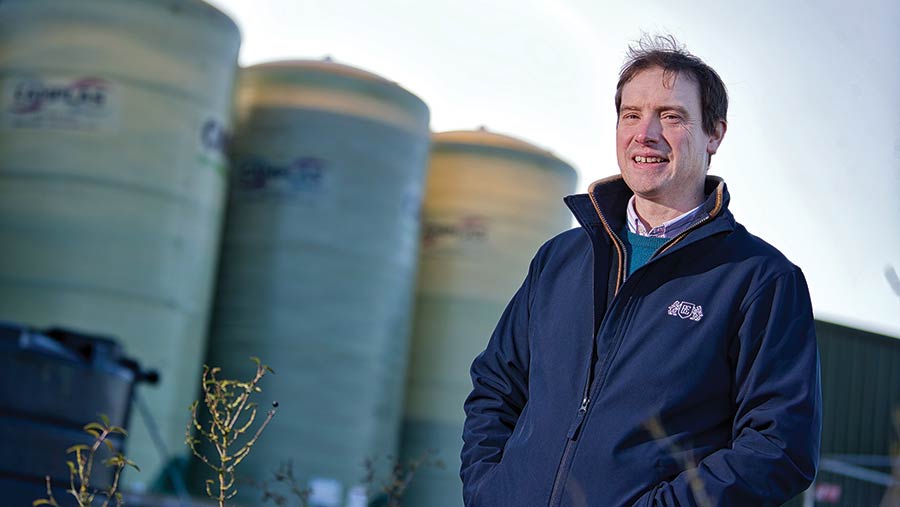Farmer Focus: Climate change or just weather, the stakes are high
 © Richard Stanton
© Richard Stanton The dry summers of the past two years have focused debate on how farmers cope with parched landscapes, only for this season to throw up the challenge of washouts.
Wherever you stand on the climate change debate, many colleagues across our industry have been thrown by the extreme heat, often at record levels, which we saw in 2022 and then the heavy downpours this year.
See also: How to protect farm businesses against extreme weather
Maybe we have been a little complacent about our seasons following the last two harvests, which have been too dry. Those of us working with grain have got used to not needing to dry our crops.
But 2023 has been completely different. After a dry June the weather from July onwards has caused pain.
At Bradford Estates, we have had to get an extra combine in for the oilseed rape and barley. There was even a hailstorm in July, with marble-sized hailstones. The barley was starting to buckle over.
Unfortunately, a lot of the barley straw got wet as we did not get a long enough period to bale it.
Drilling oilseed rape and cover crops last year was a struggle as we battled to find moisture. This year has been the complete opposite.
One of our licensees has written off several fields of lettuce due to the poor weather and higher disease issues, so summer sales have been down.
Many observers will put these extremes down to climate change and say we need to prepare for farming to be flexible.
There are technological advances to help farmers in temperate climates cope with dry spells. Work on genome editing is developing drought-tolerant varieties which can deal with extreme heat.
But the wet spells are more difficult to manage. It may be that we see more varieties which are water-tolerant, to survive prolonged summer storms.
Regardless of whether you believe it is climate change or just cycles in our weather, the stakes are high for farming.
Rather than feeling powerless, as we often can do during wet spells, we need similar controls and techniques for protecting crops as we continue to adjust.


